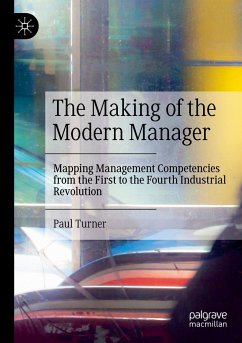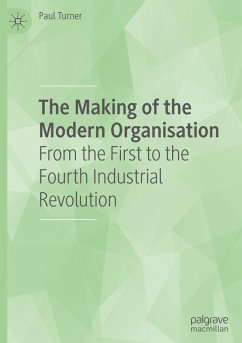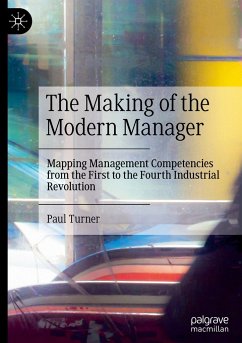
The Making of Modern Management
British Management in Historical Perspective
Versandkostenfrei!
Versandfertig in 1-2 Wochen
79,99 €
inkl. MwSt.

PAYBACK Punkte
40 °P sammeln!
The authors provide a historical account of the evolution of modern management in the UK. The book draws on archival and secondary sources and addresses such issues as the particular context of management in the UK; the development of management as a profession; management and economic performance; and the spread of management education and ideas.
Management has always been part of human organization, but it is only in the last two centuries or so that it has been the central driver of economic activity, as companies have moved from family firms to hugely complex, multinational corporations with many layers of management.
The term management is commonly used in three ways: as a process or activity; as a structure in any organization; and as a group or class of people carrying out certain roles in an organization. This book is the first detailed account of the evolution of management in all three senses. The focus is mainly on the UK, but throughout the broader question of why corporate management structures developed so impressively in the USA, Germany and Japan is borne in mind, while arguably little progress
was made in this regards in the UK.
Equally the authors consider why, given that management is now so widely studied, so little careful research has been undertaken into the evolution of the practice and the profession of management.
The book is divided into four sections. Part One provides An Introduction to Management History; Part Two, Management and Organization, explores the historical development through the 19th and 20th centuries; Part Three, Managers in Context, looks at the social and cultural context of management and managers; and Part Four considers three key functional areas, labour, marketing, and accounting and finance.
This rich, detailed, and path-breaking book will be essential reading for anyone wanting to understand the evolution of management as we now understand it, whether academics, students or managers themselves.
The term management is commonly used in three ways: as a process or activity; as a structure in any organization; and as a group or class of people carrying out certain roles in an organization. This book is the first detailed account of the evolution of management in all three senses. The focus is mainly on the UK, but throughout the broader question of why corporate management structures developed so impressively in the USA, Germany and Japan is borne in mind, while arguably little progress
was made in this regards in the UK.
Equally the authors consider why, given that management is now so widely studied, so little careful research has been undertaken into the evolution of the practice and the profession of management.
The book is divided into four sections. Part One provides An Introduction to Management History; Part Two, Management and Organization, explores the historical development through the 19th and 20th centuries; Part Three, Managers in Context, looks at the social and cultural context of management and managers; and Part Four considers three key functional areas, labour, marketing, and accounting and finance.
This rich, detailed, and path-breaking book will be essential reading for anyone wanting to understand the evolution of management as we now understand it, whether academics, students or managers themselves.












